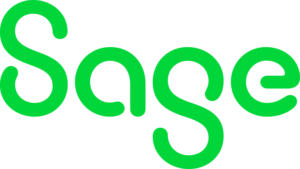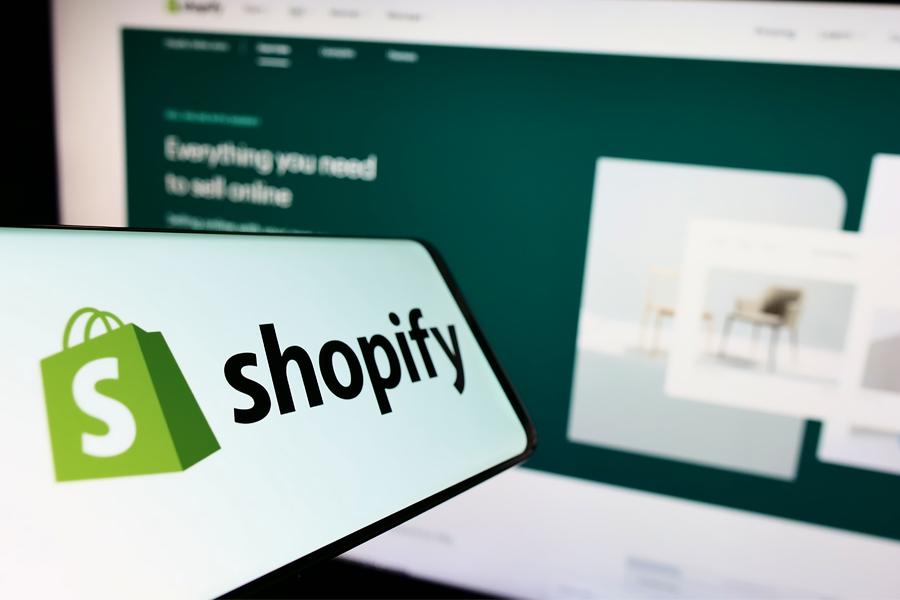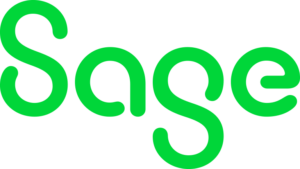The best ecommerce accounting software must integrate with your ecommerce platform to eliminate time-consuming duplicate entries and inevitable mistakes. Changes to inventory and sales recorded in your ecommerce software should flow automatically to your accounting software and vice versa. Another key feature is automatic sales tax tracking across all 50 states.
Here are the best accounting software for ecommerce businesses:
- QuickBooks Online: Best overall accounting software with built-in ecommerce feeds
- Xero: Best for unlimited users
- Sage 50: Best desktop ecommerce accounting software
- Zoho Books: Best mobile app
- Wave: Best free accounting software with Zapier for ecommerce integrations
The Fit Small Business mission is to provide small business owners with the best answers to their small business questions. We evaluated our best ecommerce accounting software by conducting an in-depth internal case study where our experts determine the strengths and weaknesses of each platform.
There are only two scenarios where we may recommend a solution that has not been subjected to our case study—if the software is not a complete bookkeeping system or if we don’t have access to evaluate the program. We evaluated all the platforms in this guide on the same set of criteria regardless of whether it is a partner company.
Quick Comparison of the Best Ecommerce Accounting Software
QuickBooks Online: Best Overall Accounting Software With Built-in Ecommerce Feeds

Pros
- Has direct feeds from Shopify, Amazon, and eBay with no integration needed
- Lets new subscribers meet with a QuickBooks ProAdvisor to set up their new company for no charge
- Can connect with additional ecommerce apps through Webgility, A2X, Connex, and Parex Bridge
- Has automatic location-based sales tax tracking—no integration required
Cons
- Is more expensive than other small business accounting software
- Won’t let you call customer service directly—must wait for them to call you
- Has a mobile app, but it’s not as complete as Zoho Books’
QuickBooks Online offers a direct connection to your Shopify, Amazon, and eBay accounts in all of its plans, although the number allowed varies by plan.
- Simple Start: $35 per month for one user and one sales channel
- Essentials: $65 per month for three users and three sales channels
- Plus: $99 per month for five users and unlimited sales channels
- Advanced: $235 per month for 25 users
QuickBooks Online offers new customers the choice of 50% off for three months or a 30-day free trial.
QuickBooks Online is our overall best small business accounting software, and nowhere does it shine more than in ecommerce accounting. It has always led this category, but now it’s working hard to reduce the reliance on integrations to connect with your sales channels. We love that you can connect your Shopify, Amazon, and eBay sales channels directly from your QuickBooks Dashboard by clicking on “Commerce” in the left menu bar.
QuickBooks Online also doesn’t rely on an integration for advanced sales tax accounting. It will automatically determine the proper sales tax jurisdiction and tax rate based on the customer address in the invoice. All the other providers in this guide require an Avalara (or similar) integration for this advanced feature—save for Wave, which lacks the feature altogether.
While QuickBooks might seem a bit expensive at first, you’ll save money by needing to add fewer integrations than with other providers.
QuickBooks Online earned the highest overall score in our case study—thanks to its enhanced accounting features, such as invoicing and inventory management, and extensive ecommerce capabilities built into the base QuickBooks platform. For even more ecommerce options, you can integrate it with major ecommerce platforms, such as A2X, WooCommerce, Magento, and BigCommerce.
We also find QuickBooks excellent for mobile accounting. It allows you to complete various tasks, such as the ability to create and send invoices and accept payments from your smartphone. On the flip side, QuickBooks is less competitive in terms of pricing when compared with the other software on our list. Xero offers more affordable pricing—although you’ll need to do more work to set up ecommerce integrations.
Xero: Best for Unlimited Users

Pros
- Features direct integration with Shopify
- Integration with third-party connectors A2X and Parex Bridge
- Has good inventory accounting
- Is much cheaper than QuickBooks and includes unlimited users in all plans
Cons
- Requires Quaderno integration for effective sales tax management across multiple states
- Has fewer independent Xero-certified bookkeepers compared with QuickBooks
- Lacks live customer service options
All Xero plans include unlimited users:
- Xero Early: $20 per month for 20 invoices and five bills
- Xero Growing: $47 per month for unlimited invoices and bills
- Xero Established: $80 per month includes multiple currencies
Xero offers new users a choice between 75% off for three months or a 30-day free trial with no credit card required.
We recommend Xero for multiuser businesses because you can set up an unlimited number of users without any additional cost—unlike QuickBooks which is $235 per month if you need more than five users. It rivals QuickBooks in inventory, A/R, and A/P management, but it’s even better than QuickBooks in project accounting and fixed asset management.
We find Xero’s project accounting features especially beneficial for ecommerce businesses that offer made-to-order goods or operate on a project-based model. The software automatically calculates the costs associated with each job order and lets you generate quotes for customers. This feature can help you create competitive pricing for your customers.
For ecommerce businesses that use specialized equipment or machinery for production, you will appreciate Xero’s fixed asset management module. With it, you can accurately track your fixed assets, calculate depreciation, and manage disposals when needed. This means you can monitor the condition of your assets, which helps you plan for future replacements or upgrades.
Xero is nearly on par with QuickBooks in terms of accounting features, but its ecommerce integration capability is not as seamless as that in QuickBooks. You can’t connect any ecommerce sales channels directly from your dashboard, but Xero does have its own integrations with Zapier, Amazon, and Shopify. You’ll need a third-party connector like A2X or Parex Bridge to integrate it with other platforms, such as WooCommerce and Etsy.
Our case study also reveals that Xero’s biggest weakness is limited customer support options—explaining its poor score in ease of use. The provider offers support only through email, a chatbot, and some self-help guides. Other providers like QuickBooks Online and Zoho Books offer phone support which is crucial, especially for addressing integration and data syncing-related concerns.
Its mobile app is also not as functional as QuickBooks and Zoho Books, as it doesn’t allow you to accept payments from customers. Another significant drawback to Xero compared with QuickBooks is the relatively small number of independent bookkeepers available in the US to help you manage your books.
Sage 50: Best Desktop Ecommerce Accounting Software

Pros
- Offers excellent accounting features
- Integrates with third-party connector eBridge Connections
- Is less expensive than QuickBooks for one user with inventory accounting
- Is desktop software, which means fewer lags and faster data input
Cons
- Requires Avalara for advanced sales tax features
- Is hard to find bookkeepers familiar with Sage 50
- Has a mobile app that’s limited to capturing receipts
Sage 50’s monthly pricing is as follows:
- Pro: $60.08 for one user
- Premium: $103.92 for one user to $239.17 for five users
- Quantum: $177.17 for one user to $452.67 for 10 users plus custom pricing for more than 10 users
There is no free trial, but a Test Drive account that you can access by visiting Sage 50’s pricing page is available. It gives you full access to a cloud-hosted version of the Sage 50 desktop software, complete with sample data.
Sage 50 (formerly Sage 50cloud, which was formerly known as Peachtree) is one of the few remaining options for small businesses seeking desktop accounting software. QuickBooks Premier—the most popular small business desktop accounting software—is no longer available to new subscribers starting September 30, 2024. Sage 50 has been around for almost as long as QuickBooks and is more than capable of filling the gap left by the demise of Premier.
The downside of desktop software is the lack of integrations, but this is where Sage 50 surprised us. Sage 50 integrates with eBridge Connections, which then enables connections with Shopify, Amazon, eBay, Etsy, and more. It also integrates with Avalara to enable advanced sales tax management across all 50 states.
As expected, Sage 50 did great in our evaluation of accounting and inventory features. It has our A/R, A/P, and reporting features. It scored slightly behind Quickbooks Online in banking and cash management because of the lack of flexibility in handling bank deposits, which can result in a more complicated bank reconciliation.
While we think Sage 50’s ecommerce integrations are outstanding for a desktop program, it did score well behind QuickBooks Online and Xero in this category. Whereas Sage 50 is dependent on eBridge Connections for all its Ecommerce integrations, QuickBooks and Xero offer simpler-to-use direct connections and native integrations.
The major shortcoming of Sage 50 in our case study is its mobile app, which isn’t surprising given it’s a desktop program. Zoho Books has the best mobile accounting app we’ve seen and provides all the same accounting features as its computer interface.
Zoho Books: Best Mobile App

Pros
- Integrates with other Zoho apps to provide a complete suite of management software
- Offers the best-in-class mobile app
- Integrates with many ecommerce apps through Zoho Flows, which requires a separate subscription
- Has Zoho Inventory, which directly integrates with eBay, Shopify, Etsy, and Amazon
Cons
- Requires Elite plan for direct connections to Shopify, Amazon, eBay, and Etsy
- Requires Avalara integration for advanced sales tax management
- Lacks third-party connectors to integrate with ecommerce sites
- Free: $0 per month for one user and accountant for companies with annual revenues of $50,000 and below
- Standard: $20 per month for three users and 500 customers and vendors
- Professional: $50 per month for up to five users
- Premium: $70 per month for up to 10 users
- Elite: $150 per month for up to 10 users and advanced inventory control (recommended for Ecommerce businesses)
- Ultimate: $275 per month for up to 15 users, 25 custom modules, and advanced analytics
We are particularly impressed with Zoho Books’ strong mobile accounting features. This is important and timely for modern ecommerce businesses, especially those that need to track sales and inventory levels and manage orders away from their computers.
Zoho Books’ app beats even QuickBooks Online because it allows you to perform multiple tasks, such as sending invoices, accepting payments, and managing your expenses. This is why Zoho Books leads our roundup of the best mobile accounting apps.
What’s more, Zoho Books excels in inventory management. When you add Zoho Inventory, you can accurately account for inventory costs in the books and manage inventory requirements and reorder points. Plus, Zoho Inventory integrates with Amazon, eBay, and Etsy.
As one of our best bookkeeping software for ecommerce businesses, Zoho Books has remarkable accounting features like QuickBooks and Xero. However, it offers a free plan for very small businesses and excels in mobile accounting. It earned a perfect score in mobile accounting because it offers all of the features we wanted to see in a mobile app, including receipt capture, invoicing, and payment processing.
However, it took a hit in ecommerce integration due to its lack of built-in integrations unless you spend $150 per month for the Elite plan. Without the Elite plan, you’ll need to use Zapier or purchase additional Zoho products with their own Ecommerce integrations, such as Zoho Inventory, which ranges from $0 to $329 monthly, or Zoho Flows, which ranges from $12 to $30 monthly.
Zoho Books has plenty of options for customer support, but unlike Sage 50, customer support is unavailable 24 hours per day. It’s also not as easy to use as QuickBooks Online. Zoho Books is a bit complicated and can be overwhelming for some ecommerce business owners with no accounting background.
Wave: Best Free Accounting With Zapier for Ecommerce Integrations

Pros
- Has a free version for one user
- Allows you to create and send an unlimited number of invoices
- Integrates with Zapier
- Lets you customize workflows using Zaps through Zapier
- Has good basic accounting features
Cons
- Lacks direct ecommerce integrations or third-party connectors
- Can’t connect bank accounts in the free version
- Has no project accounting and inventory features
- Must set up sales tax rates and jurisdictions by hand
- Starter: Free; includes one user and most accounting and invoicing features
- Pro: $16 per month when billed monthly or $170 per year when billed annually; includes unlimited user access, bank connections, and unlimited receipt scanning
We included a free option for companies that are just getting started and not quite ready to make an accounting software commitment. While we don’t recommend Wave as a long-term solution for ecommerce companies, we do believe it is the best fit among free software. It has solid accounting and invoicing features along with a Zapier integration.
While more work than pre-built integrations, you don’t need to start your Zaps from scratch—there are already Zaps built that you can use for many processes. For instance, there are Shopify/Wave Zaps available on Zapier for recording Shopify sales, creating invoices in Wave from orders in Shopify, creating Wave customers from new Shopify orders, and more. The big drawback with Zapier is you need to create a new Zap for each action.
Wave leads in pricing, as it offers a free plan for a single user and a plan for unlimited users for just $16 per month. You can send unlimited invoices to customers and keep track of your accounts at no cost—making it our best free accounting software. Wave also did well in ease of use and user reviews. However, Wave scored poorly in most other categories compared with the higher-priced software in this guide.
The program lacks inventory accounting, and any ecommerce integrations must be accomplished by creating Zaps with Zapier—which is very time-consuming compared with the direct ecommerce integrations offered by other software. The program itself is simple and easy to use, but we had to deduct some points because of its limited customer support options, particularly in the free plan. You can only access email support and live chat when you purchase a paid add-on or upgrade to the paid version.
How We Evaluated Accounting Software for Ecommerce Businesses
Using our expert-led internal case study, we evaluated the best ecommerce accounting software by focusing on eight major criteria.
10% of Overall Score
Each software was rated on price compared with other software well suited to ecommerce companies. In addition to the cost of a monthly subscription, we factored in the number of available users and any additional charges that are likely incurred by ecommerce companies.
25% of Overall Score
We evaluated each software on banking, A/P, A/R, inventory, sales tax, and reporting.
20% of Overall Score
Businesses with inventory items should choose accounting software that can track inventory costs, manage COGS, and monitor inventory units.
25% of Overall Score
Accounting software was rated on its ability to integrate with ecommerce software. Software needed to connect with at least one popular third-party connector for maximum flexibility in establishing ecommerce connections with a variety of sites.
5% of Overall Score
Mobile apps were evaluated on their ability to perform basic accounting functions from within the application.
5% of Overall Score
Ease of use includes the layout of the dashboard and whether new transactions can be initiated from the dashboard rather than having to navigate to a particular module. Other factors considered are user reviews specific to ease of use and a subjective evaluation by our experts of both the UI and general ease of use.
5% of Overall Score
We visited user review websites to read first-hand reviews from actual software users. This user review score helps us give more credit to software products that deliver a consistent service to their customers.
5% of Overall Score
Customer service is evaluated based on the number of communication channels available, such as phone, live chat, and email. Software providers also receive points based on other resources available, such as self-help articles and user communities. Finally, they are awarded points based on the ease with which users will find assistance from independent bookkeepers with expertise in the platform.
Using accounting software for ecommerce provides numerous benefits, including the ability to:
- Integrate with ecommerce platforms, such as Shopify, Amazon, WooCommerce, and BigCommerce
- Manage your financial transactions, such as sales, expenses, and taxes, efficiently
- Track inventory levels in real time and calculate COGS automatically
- Categorize and track expenses so that you’ll know where your money is going
- Perform automatic sales tax calculations for easier tax reporting and compliance
- Generate reports, such as profit and loss (P&L), cash flow statements, and sales tax reports
Frequently Asked Questions (FAQs)
Features to consider when choosing ecommerce accounting software include invoicing, payment processing, expense tracking, financial reporting, inventory tracking, and integrations with your ecommerce platform.
Yes, Wave offers a free accounting software option for small businesses, but all ecommerce integrations must be done through Zapier.
Some ecommerce accounting software can integrate with popular ecommerce platforms, such as Shopify, WooCommerce, and Square. Be sure to check if the software you’re interested in offers integrations with your specific platform.
Bottom Line
Ecommerce businesses must invest in accounting software that integrates with their ecommerce platform to avoid unnecessary data entry and errors. For a well-rounded accounting software service, QuickBooks Online is our top pick—you’ll never go wrong with its features. Xero is also a great choice, although you may have trouble finding an independent Xero bookkeeper to work with you.



